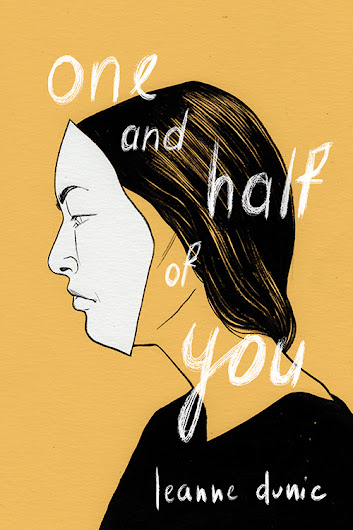First, there were them,
and them, and them.
Then more. Faces mixed. A
pocket here, a
clan there. landscapes
shifted – people, too.
Communities disappeared.
And now there is me. I will draw you some maps.
West Coast writer and musician Leanne Dunic’s latest, following To Love the Coming End (Toronto ON: Book*hug/Chin Music Press, 2017) [see my review of such here] and The Gift (Book*hug, 2019), is the long poem lyric memoir One and Half of You (Vancouver BC: Talonbooks, 2021). One and Half of You is a treatise on sibling love, and seeking a space of comfort and comprehension; an examination on identity and growing up. A book-length collection of lyrics that accumulate across a narrative around mixed-race identities, gender and sexual preference, Dunic writes a fragmented composed of short bursts, prose knots and breaths. Dunic writes on growing up into and against a set of expectations that don’t quite fit, experiencing homophobia and racist presumptions and attacks and dismissals. Dunic’s small sections focus on the intimate, seeking to articulate a mapping of how one gets to here. “Funny that the girl from my kindergarten / class remembers my Ghostbuster-crush / more than me kissing her nearly every day. / When I think of her, that’s what I remember.”
The lyrics that make up One and Half of You are set as a long thread, nearly an endurance; a book that attempts to navigate the complications of self against shortsighted social limitations. “At recess,” Dunic writes, early on in the collection, “the older kids taunted, <are you a / boy or a girl?> I was pretty sure I was a girl / but didn’t understand why I wanted to kiss / boys and girls when I knew I wasn’t / supposed to. Gender didn’t matter. Age / didn’t either; I recall not just kissing my / classmates, but the grey-haired school / principal too. I loved to love.”
Chinatown, four-by-ten
room, the gap between
books. Paper and beeswax.
Scent captive
like insects in resin. Selves
we shelve for
future reference. Discover
intimacy of sleep.
Difficult to catalogue,
love is full of defiant
Compulsions. Inhale. Wear
it like rubies.
Set in three sections, each with accompanying soundtrack to be found on the Talonbooks website, Dunic speaks of subtle and overt anti-Asian racisms, from those personally experienced to those further out in the community. She speaks of evolution, change and shifts. “Displacement is / a pattern, not a single occurrence.” Akin to Kenyatta A.C. Hinkle’s SIR (2019) [see my review of such here], Dunic seeks an orientation as much as an articulation through this lyric memoir, working a poetic framed as a sibling portrait that extends out to the family unit and the larger community, and returning to the author/narrator as a counterpoint. The portrait centres on the relationship and interactions between the two, and both the distances and connections that can’t help but keep them.



No comments:
Post a Comment